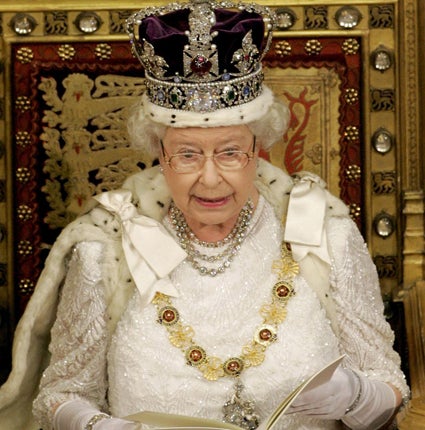
Your support helps us to tell the story
From reproductive rights to climate change to Big Tech, The Independent is on the ground when the story is developing. Whether it's investigating the financials of Elon Musk's pro-Trump PAC or producing our latest documentary, 'The A Word', which shines a light on the American women fighting for reproductive rights, we know how important it is to parse out the facts from the messaging.
At such a critical moment in US history, we need reporters on the ground. Your donation allows us to keep sending journalists to speak to both sides of the story.
The Independent is trusted by Americans across the entire political spectrum. And unlike many other quality news outlets, we choose not to lock Americans out of our reporting and analysis with paywalls. We believe quality journalism should be available to everyone, paid for by those who can afford it.
Your support makes all the difference.Given that Labour was the biggest loser in this election, some people might be wondering what Gordon Brown was doing in 10 Downing Street yesterday.
He had not gone in there to pack up and say goodbye. There were no removal vans in the street, because Mr Brown and his staff had gone back to work as if the election had never happened.
Others might think that Labour politicians were showing a lot of gall as the results piled in, when they kept repeating the mantra that the Conservatives had not won the election, and therefore, by implication, the Labour Party had a right to continue to govern.
Constitutionally, however, they were correct. Although all MPs cease to be MPs when a general election campaign begins, the prime minister continues to be prime minister until he resigns.
Gordon Brown's time in office is drawing near to an end, but is not quite over yet. Nor is it certain who his successor will be. The Queen will eventually send for the politicians whom her advisers tell her is the person best placed to command a majority in the House of Commons. If David Cameron cannot reach an accommodation with the Liberal Democrats, but a Labour cabinet minister can, there will be another Labour prime minister. It is normal for the prime minister to be the leader of the biggest party in the Commons, but it is not a constitutional must.
The deal that leads to the formation of a government does not have to be a formal coalition, in which members of different parties sit in the same Cabinet. As Mr Cameron said yesterday, there is the alternative of a "confidence and supply" agreement, under which the Liberal Democrats would guarantee to support the Budget and other vital "supply" measures, and not to vote against the Government in a confidence vote.
Although the Queen will carry out the formalities, she kept well away from the political horse trading yesterday, leaving it to the politicians and to senior establishment figures such as the Cabinet Secretary, Sir Gus O'Donnell.
Join our commenting forum
Join thought-provoking conversations, follow other Independent readers and see their replies
0Comments